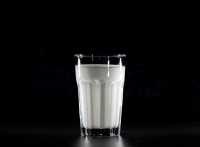
22 Dec Drinking MilK During Breast Feeding May Protect Children From Food Allergy
MedicalResearch.com Interview with:
Mia Stråvik
PhD-student | Doktorand
Department of Biology and Biological Engineering
Division of Food and Nutrition Science
Chalmers University of Technology
MedicalResearch.com: What is the background for this study?
Response: There is a need of research investigating the role of maternal diet during pregnancy and lactation on the baby’s allergy risk. Allergy is one of the most common chronic diseases of childhood, causing great suffering for the allergic child but also the entire family. Yet, the possibilities to cure and prevent this, in many cases life long, suffering are very limited. Previous research have indicated that maternal diet during pregnancy and lactation may affect the propensity of the child to develop an allergy, and diet is a factor you as a parent really can influence.
MedicalResearch.com: What are the main findings?
Response: In this study, we found that mother’s to non-allergic children consumed more cow’s milk during the first four months after childbirth, compared to mother’s to children with food allergy diagnosed at twelve months of age. The intake of cow’s milk was validated by measures of the specific milk fatty acids 15:0 and 17:0 in maternal erythrocytes and breast milk at four months of age. In addition, allergic heredity and reverse causation (i.e., the possibility that women excluded cow’s milk after the child developed allergic symptoms, and not before) was controlled for using repeated measures of dietary data and information about early allergic symptoms due to cow’s milk.
MedicalResearch.com: What should readers take away from your report?
Response: Maternal consumption of cow’s milk during lactation may protect the child from developing food allergy.
MedicalResearch.com: What recommendations do you have for future research as a result of this work?
Response: It would be interesting with randomized controlled trials digging deeper into the mechanisms of tolerance induced by maternal cow’s milk consumption. Also, large cohort studies using doctor’s diagnosed allergy (not parent reported) and repeated measurements of dietary data to control for reverse causation, is encouraged.
MedicalResearch.com: Is there anything else you would like to add?
Response: Even though the association between maternal cow’s milk consumption and lower prevalence of doctor’s diagnosed food allergy was clear in our materials, it’s very important to keep in mind the fact that causality cannot be proven.
Citation:
Mia Stråvik, Malin Barman, Bill Hesselmar, Anna Sandin, Agnes E. Wold, Ann-Sofie Sandberg. Maternal Intake of Cow’s Milk during Lactation Is Associated with Lower Prevalence of Food Allergy in Offspring. Nutrients, 2020; 12 (12): 3680 DOI: 10.3390/nu12123680
[wysija_form id=”3″]
[last-modified]
The information on MedicalResearch.com is provided for educational purposes only, and is in no way intended to diagnose, cure, or treat any medical or other condition. Always seek the advice of your physician or other qualified health and ask your doctor any questions you may have regarding a medical condition. In addition to all other limitations and disclaimers in this agreement, service provider and its third party providers disclaim any liability or loss in connection with the content provided on this website.
Last Updated on December 22, 2020 by Marie Benz MD FAAD
